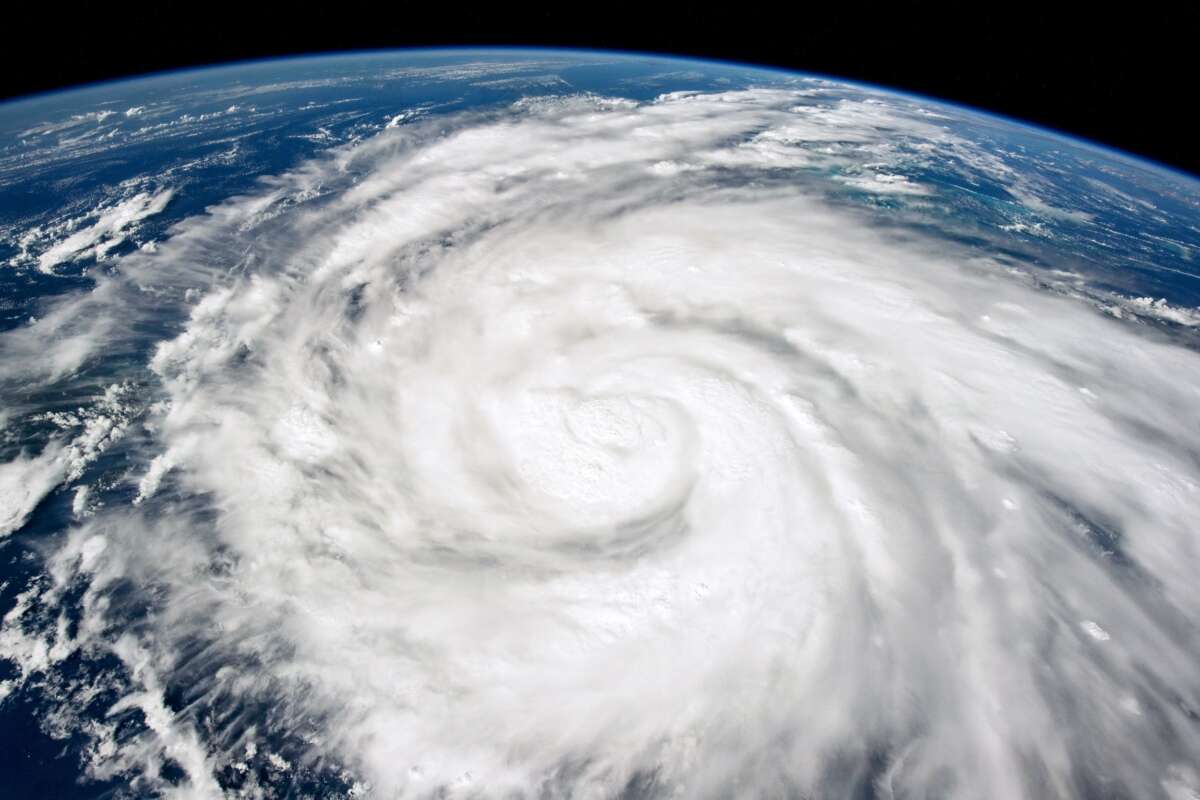Support justice-driven, accurate and transparent news — make a quick donation to Truthout today!
Last week, the National Oceanic and Atmospheric Administration (NOAA) issued an alarming May forecast for the upcoming Atlantic storm season, predicting an increase in storms in a number of categories, including intense hurricanes.
The report comes as the climate crisis, coupled with El Niño/La Niña weather phenomena, has already resulted in an increase of devastating natural disasters across the globe.
The Atlantic storm season lasts from June to November each year. Storms are predicted to be more frequent and particularly catastrophic in the 2024 season, due in part to an above-average African monsoon season, where storms form into tropical systems that eventually cross over the ocean. Near-record warm temperatures in the Atlantic will also result in more dangerous storms.
Both of those conditions are being exacerbated by rising global temperatures.
NOAA predicts that there will be between eight and 13 hurricanes this year in total, higher than the usual seven that are seen each year. The agency is also predicting that a range of 17 to 25 named storms will occur in the Atlantic, above the 14 that are typically witnessed annually.
Major hurricanes — in which the storm systems reach Category III level or higher, and winds exceed 111 miles per hour — will take place between four and seven times this year. Usually, just three major hurricanes occur yearly.
Overall, the agency has predicted that there is an 85 percent chance of an above-average storm season, with a 70 percent confidence level that their predictions will come true.
Government officials, including Federal Emergency Management Agency (FEMA) Deputy Administrator Erik Hooks, are urging people in affected areas to ready themselves for the approaching season.
“Before hurricane season officially begins, my message to the American people is this: Take time to make sure that you have a clear understanding of your unique risk now,” Hooks said.
Scientists have noted that the climate crisis is a major driver of this year’s pending Atlantic storm and hurricane season. Astrid Caldas, a senior climate scientist for community resilience at the Union for Concerned Scientists (UCS), called on federal, state and local governments to “help keep communities safe by prioritizing investments to get homes, businesses, and infrastructure in frontline communities climate-ready,” adding that “reining in heat-trapping emissions driving the climate crisis is also essential.”
Indeed, this year has already seen a number of climate-related events, including:
- A higher number of tornadoes in the U.S. from January through April, exceeding last year’s numbers and the second-highest total seen over the past decade;
- The worst flooding Brazil has seen over the past 80 years, with dozens killed and thousands more displaced in the state of Rio Grande do Sol this spring;
- Storms last fall and winter in the United Kingdom and Ireland, which were deemed 10 times more likely to have happened due to the climate crisis;
- And devastating heatwaves in southeast Asia that have killed dozens of people so far.
In the past, NOAA has recognized that the climate crisis is a driver of tropical cyclones, and that global warming is likely causing such storms to be more intense.
According to a report from The Climate Council, an Australian-based nonprofit, the climate crisis is only going to become more severe in the coming years due to the continued burning of coal, oil and gas.
“We’re not even half way through 2024, yet we’ve already witnessed countries in all corners of the globe endure extreme weather events,” the organization wrote in a recent blog post. “From ferocious wildfires to devastating floods and scorching heatwaves, the toll of climate change is all around us.”
“We urgently need to cut climate pollution this decade to limit the severity of future events,” the group added.
Press freedom is under attack
As Trump cracks down on political speech, independent media is increasingly necessary.
Truthout produces reporting you won’t see in the mainstream: journalism from the frontlines of global conflict, interviews with grassroots movement leaders, high-quality legal analysis and more.
Our work is possible thanks to reader support. Help Truthout catalyze change and social justice — make a tax-deductible monthly or one-time donation today.
